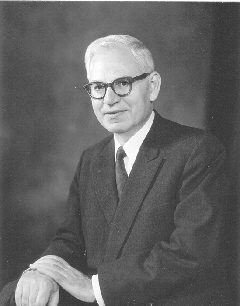A Quote by Lord Acton
For centuries it was never discovered that education was a function of the State, and the State never attempted to educate. But when modern absolutism arose, it laid claim to everything on behalf of the sovereign power....When the revolutionary theory of government began to prevail, and Church and State found that they were educating for opposite ends and in a contradictory spirit, it became necessary to remove children entirely from the influence of religion.
Quote Topics
Absolutism
Attempted
Became
Began
Behalf
Centuries
Children
Church
Church And State
Claim
Contradictory
Discovered
Educate
Educating
Education
Ends
Entirely
Everything
Found
Function
Government
Influence
Laid
Modern
Necessary
Never
Opposite
Power
Prevail
Religion
Remove
Revolutionary
Sovereign
Spirit
State
Theory
Were
Related Quotes
[T]he influence of the German school is most obvious in relation to the contract theory of the origin of the state and the idea of the function of the state. The theory that the state originates in an agreement between men was assailed by the German thinkers and the historical, organic, evolutionary idea substituted for it.
Prior to and during [John] Locke's time, it was difficult to determine where religion or church left off and government or state began. The powers of both were often combined. As a result, churches frequently used the force of the state to promote and enforce their interests and doctrines. This caused horrendous atrocities against Jews and heretics, as well as the European religious wars between Catholics and Protestants of the sixteenth and seventeenth centuries that resulted in the deaths of millions of people.
The separation of church and state is necessary partly because if religion is good then the state shouldn't interfere with the religious vision or with the religious prophet. There must be a realm of truth beyond political competence, that's why there must be a separation of churches, but if religion is bad and a bad religion is one that gives an ultimate sanctity to some particular cause. Then religion mustn't interfere with the state - so one of the basic Democratic principles as we know it in America is the separation of church and state.
It isn't a coincidence that governments everywhere want to educate children. Government education, in turn, is supposed to be evidence of the state's goodness and its concern for our well-being. The real explanation is less flattering. If the government's propaganda can take root as children grow up, those kids will be no threat to the state apparatus. They'll fasten the chains to their own ankles. H.L. Mencken once said that the state doesn't just want to make you obey. It tries to make you want to obey. And that's one thing the government schools do very well.
The withdrawal of a State from a league has no revolutionary or insurrectionary characteristic. The government of the State remains unchanged as to all internal affairs. It is only its external or confederate relations that are altered. To term this action of a Sovereign a 'rebellion' is a gross abuse of language.
During the first formative centuries of its existence, Christianity was separated from and indeed antagonistic to the state, with which it only later became involved. From the lifetime of its founder, Islam was the state, and the identity of religion and government is indelibly stamped on the memories and awareness of the faithful from their own sacred writings, history, and experience.
How can you have the religion of the sovereign be the religion of the state if the sovereign belongs to many religions? And it's at that point, I think, historically, that you start to see people saying maybe the state should not associate itself with any religion. Maybe there shouldn't be any official religion.
We disapprove of state education. Then the socialists say that we are opposed to any education. We object to a state religion. Then the socialists say that we want no religion at all. We object to a state-enforced equality. Then they say that we are against equality. And so on, and so on. It is as if the socialists were to accuse us of not wanting persons to eat because we do not want the state to raise grain.
The state which is regarded as the instrument for universalizing a certain religion must perforce be an ever expanding state. The Islamic state, whose principal function was to put God’s law into practice, sought to establish Islam as the dominant reigning ideology over the entire world….The jihad was therefore employed as an instrument for both the universalization of religion and the establishment of an imperial world state.
The church must be reminded that it is not the master or the servant of the state, but rather the conscience of the state. It must be the guide and the critic of the state, and never its tool. If the church does not recapture its prophetic zeal, it will become an irrelevant social club without moral or spiritual authority.
There is absolute truth in anarchism and it is to be seen in its attitude to the sovereignty of the state and to every form of state absolutism. [...] The religious truth of anarchism consists in this, that power over man is bound up with sin and evil, that a state of perfection is a state where there is no power of man over man, that is to say, anarchy. The Kingdom of God is freedom and the absence of such power... the Kingdom of God is anarchy.
Today the separation of church and state is America is used to silence the church... The way the concept is used today is totally reversed from the original intent... It is used today as a false political dictum in order to restrict the influence of Christian ideas... To have suggested the state separated from religion and religious influence would have amazed the Founding Fathers.

































